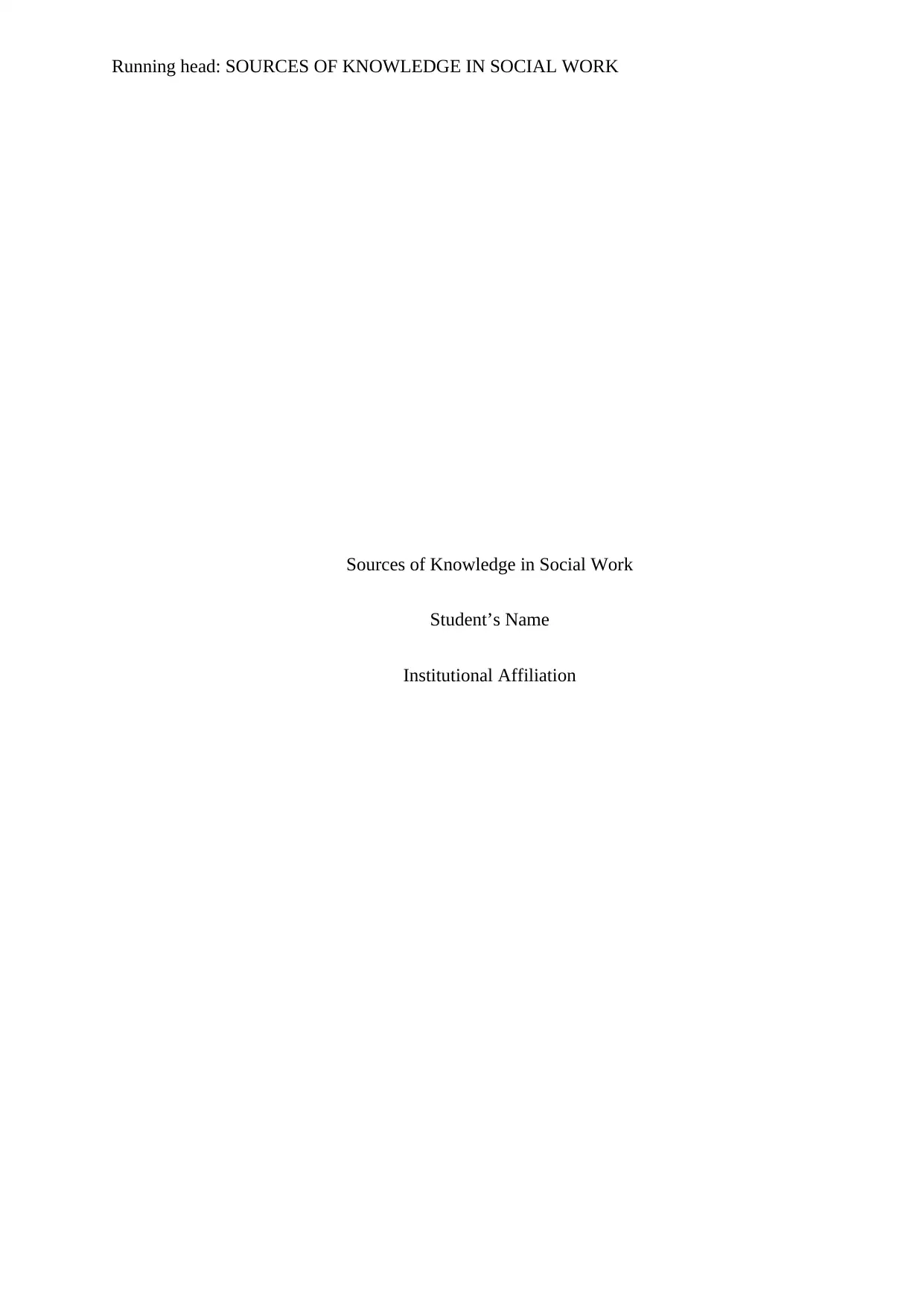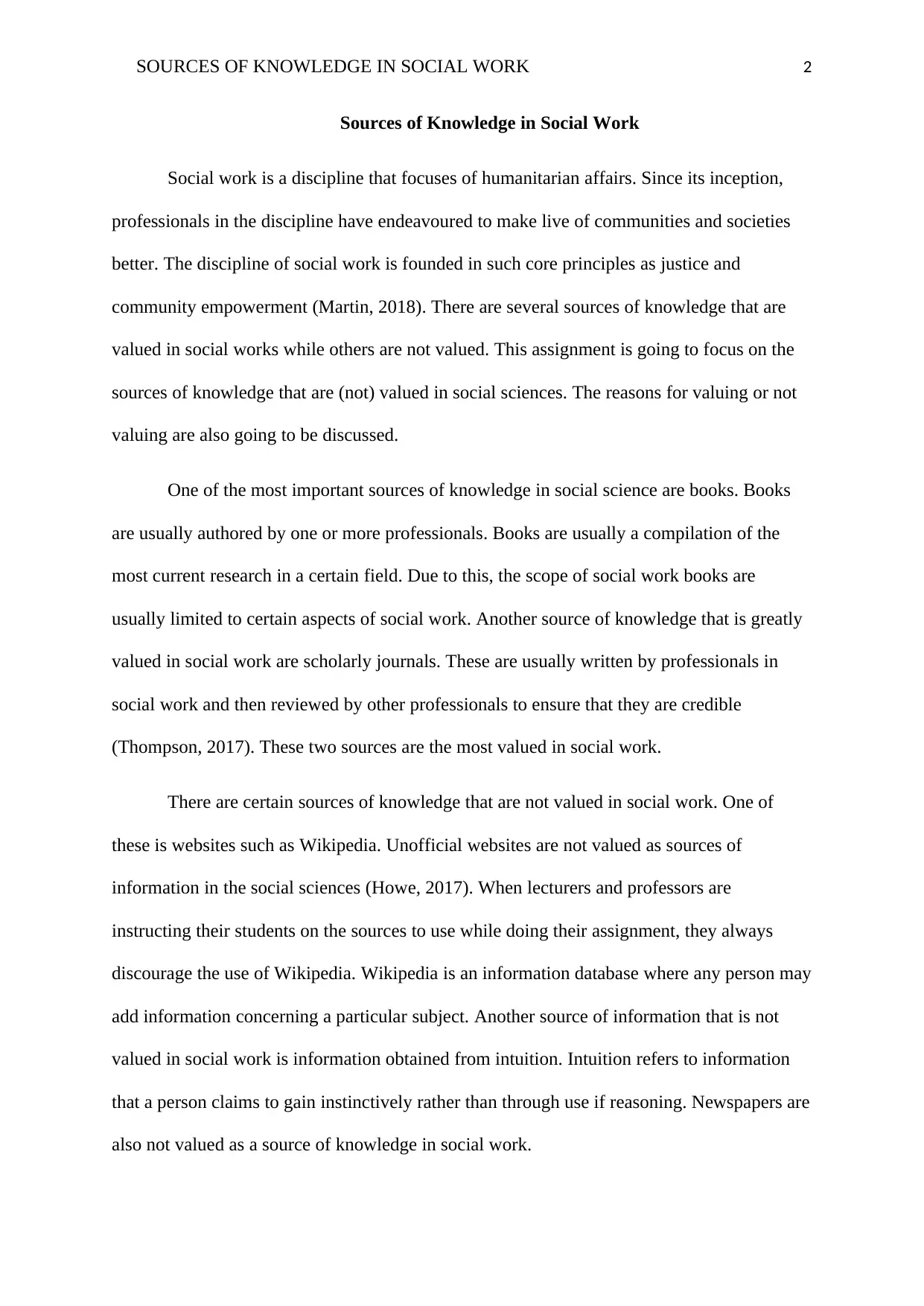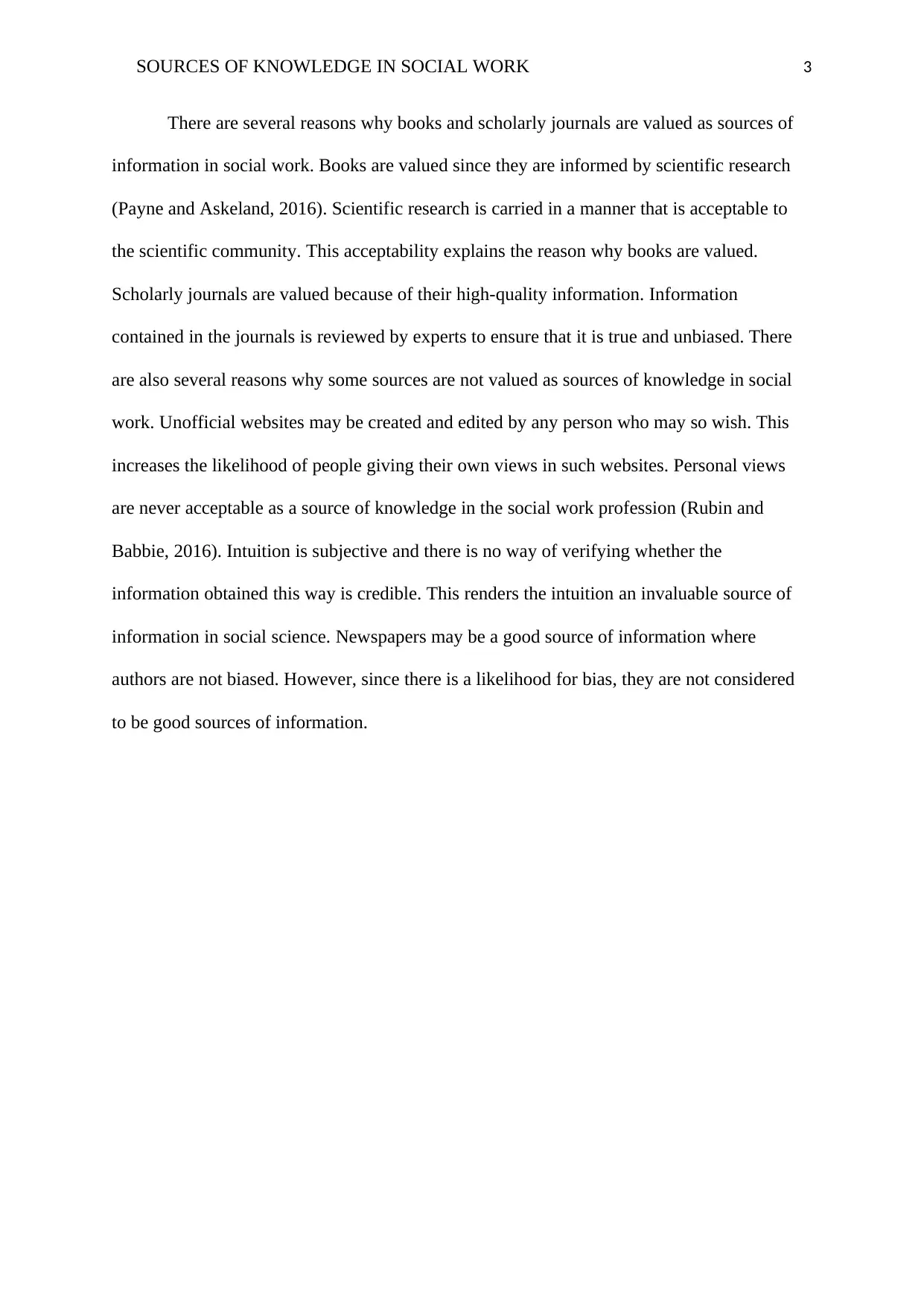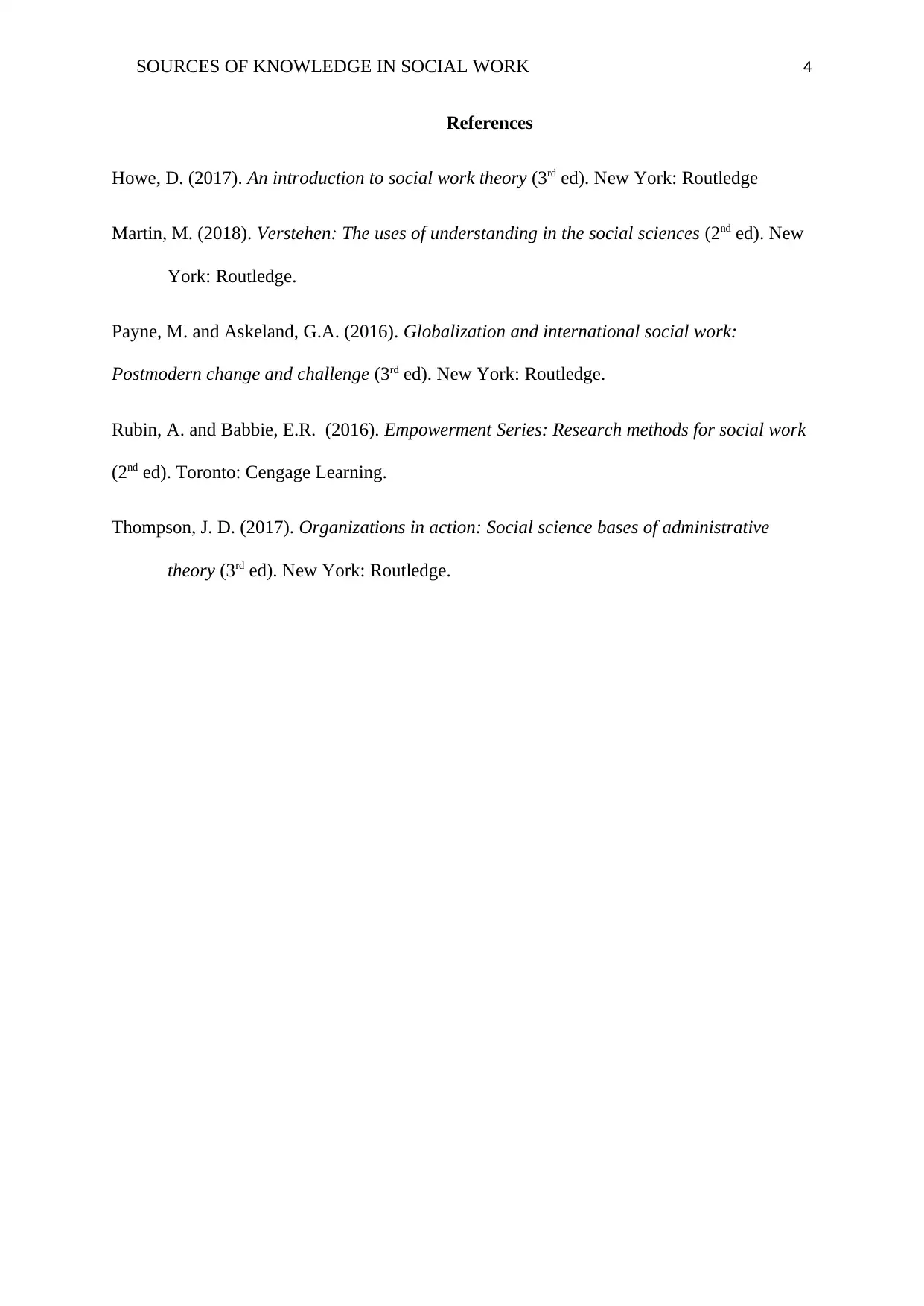Sources of Knowledge in Social Work: Valued and Unvalued Sources
VerifiedAdded on 2023/01/23
|4
|766
|67
Essay
AI Summary
This essay examines the sources of knowledge in social work, focusing on what is valued and what is not. It highlights books and scholarly journals as crucial sources due to their basis in scientific research and peer review. Conversely, it devalues sources like Wikipedia, intuition, and newspapers due to their potential for bias and lack of credibility. The essay provides reasons for valuing or not valuing specific sources, emphasizing the importance of scientific research and unbiased information in the social work profession. The author references various academic sources to support the arguments presented, demonstrating the importance of credible sources in social work research. The essay underscores the significance of reliable and verified information in the field, essential for effective practice and decision-making.
1 out of 4









![[object Object]](/_next/static/media/star-bottom.7253800d.svg)